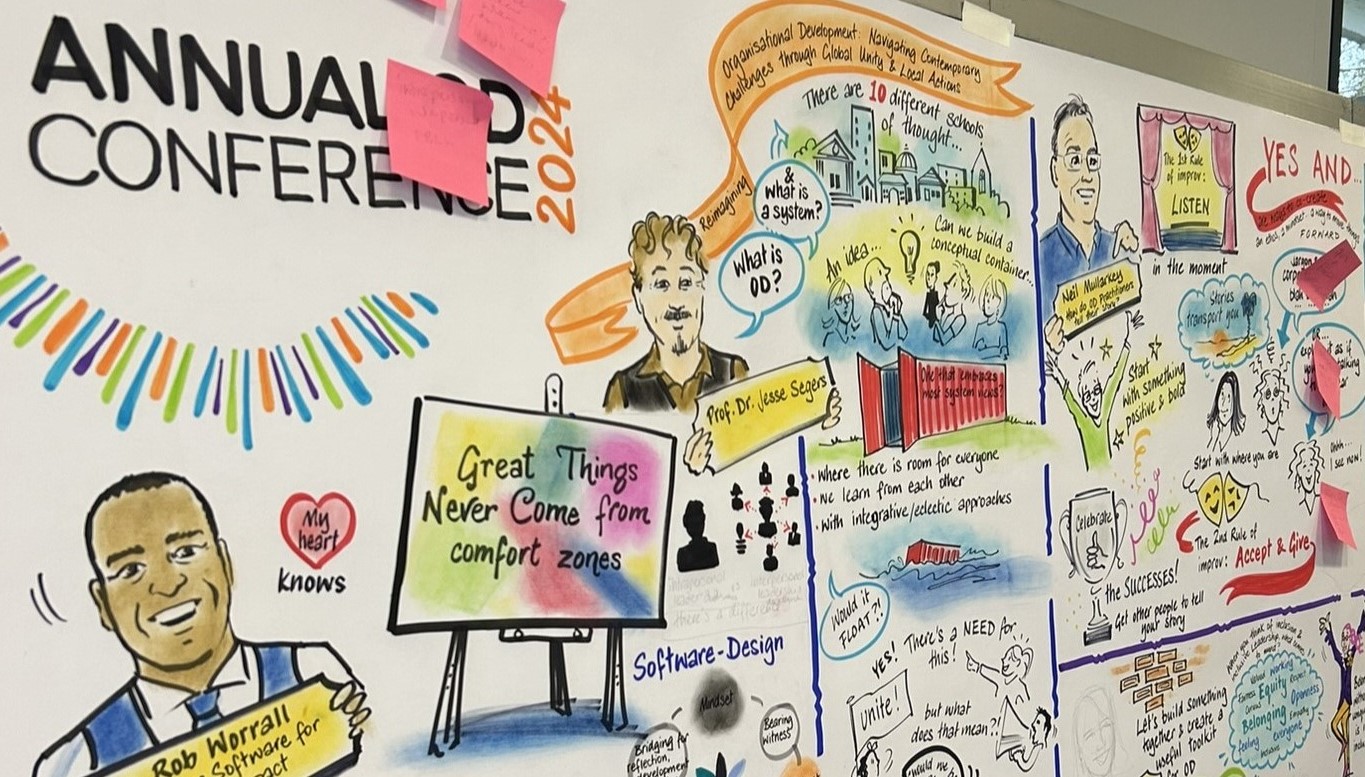Today more than ever, there is so much to say about this topic. Where to focus? My present experiences around this relate particularly to supporting a (brilliant) NHS University Hospital Trust with navigating a core question: How to strengthen culture in crisis? I think the question is relevant to many leaders in many settings right now, in health and well beyond. For the NHS in particular though, many Trusts have been tackling culture change for years and this crisis presents both real risks but also opportunities to this work. OD thinking and practice has much to offer in navigating a path between the two. While some of what I say below is specific to that context, I hope for those of you working in other contexts you can see the parallels for you and your work.
Risks
Aside from the foreground and real risk of financial viability in all its potential forms, which I am not trying to address here, there are other sorts of risks right now too. When people are under this sort of pressure and emotional load, nearly everyone ends up in a physiological stress response. Individual behaviour, frankly, becomes a huge risk. Three terms you may recognise that help us here are Fight, Flight and Freeze. Flight – ‘batten down hatches’, ‘circle the wagons’ or any other metaphor you care to name that means keep your head down and don’t engage unless you have to. Fight – you look for people to blame and project all your uncomfortable feelings onto, you challenge and disagree with proposed approaches, you dig your heels in and say no. And Freeze – you just become paralysed to act, most likely by fear. You don’t engage and by default you are likely to appear disengaged to others, even though you may still want to be ‘in’. This may not look any different on the outside from flight.

All these responses in leaders (everyone, in fact) will create problems, which you may be experiencing right now as a leader and/or follower. Perceived deficits of taking responsibility and making decisions (flight and freeze); arguments and buck-passing (fight); cross words and looks (fight); even a perhaps less stressed, grounded response of increased levels of action to develop and execute an active response may land for recipients as fight if they are in their own Flight response.
Ultimately, a key risk in this crisis context is that the behaviour of everyone – and leaders are rarely immune – becomes more extreme, undermining the intended culture and values and amplifying potentially destructive behavioural and cultural patterns in the process. Things like blame and scapegoating, siloed working, lack of follow through on commitments are some examples of what might come strongly to the fore. While everyone is bound to struggle in these times, we must remember that the impact of leaders’ own more extreme actions have a disproportionate effect, as always; perhaps now even more than in ‘normal’ times, as people look to ‘those in charge’ for some sense of certainty and security. This is not to say that a more authoritative style of leadership may not be necessary in such times – some theory would endorse such a response. But that still needs to be done with sensitivity, engaging and listening to the collective intelligence and needs of staff.
Alongside this immediate short term risk is a medium-long term risk that all attention is poured into the present moment, understandably, and the more strategic, sustainable view of work that will still be needed down the line is dropped, only to create bigger problems for later. I will return to this.
Opportunities

I have heard some say that there is no point attending to culture in these atypical times because we aren’t seeing the ‘real’ culture any more and everyone is too busy anyway. I disagree. There may be no better or more important time to attend to it. As the modified saying goes, culture isn’t just ‘how people do things round here’ – in part it is also ‘how people do things round here when no one is looking’! But when people start to act out of a stress response, that normally censored behaviour becomes more visible and prevalent. We get to see some of the deeper roots of culture in these difficult times. The challenge seems to me to be, in part, to find a way to sensitively call out these predispositions and assumptions in ways that don’t then add further to the stress but can be received by leaders as useful and supportive. I copy below a short prompt sheet I am using with senior leaders presently, which, if the right tone and framing accompanies it, may be one way to offer this sort of awareness raising and potentially behaviour changing intervention.
While what I have said up until now may read to you as more on the negative side of culture, I hope you can see that the questions above seek to draw out of leaders what they are doing well and what they want more of, not just a deficit view of problems and mistakes. And of course we are seeing amazing examples right now of people within and beyond the NHS stepping up in truly heroic, altruistic ways, giving people comfort, hope and inspiration. It’s not all bad news for culture, by any means.
The second reason I disagree that culture cannot be worked with in these times is a simple business reason. Leaders cannot afford not to. The way people feel about their work is fundamentally important to whether they will give fully of themselves now, let alone in a few months when they will probably have more other employment options. The present imperative may seem like a boost to the power of those at the top, but rest assured this will be short lived if it is abused – people will remember how they felt and how leaders acted in these times.
OD’s role in tipping the balance
So in summary, these times can shine a brighter light than ever on the truth of culture. If this can be seen and acted on in systemic, supportive ways with leaders, it may prove a wonderful moment to see some of the leadership drivers in a culture and subtly adjust them day to day through personal awareness and action. That is a lot to ask of leaders in these times, of course. And that is part of the duty of stepping into a leadership role, in my view.

While this blog may seem to be more about leadership than OD, that is the point, really. In these times particularly, two disciplines that are so often seen as at least partly separate might be seen more clearly as essential accomplices. You cannot do OD without leadership and leaders will only achieve their best results if they act with some understanding of OD principles and approaches.





